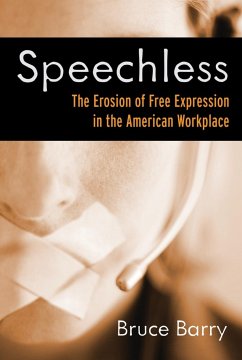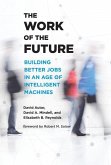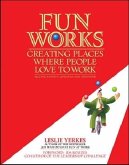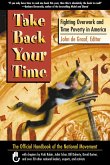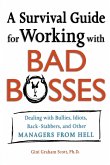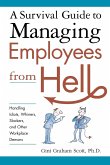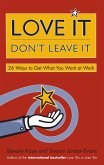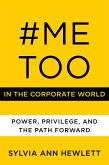A factory worker is fired because her boss disagrees with her political bumper sticker. A stockbroker feels pressure to resign from an employer who disapproves of his off-hours political advocacy. A flight attendant is grounded because her airline doesn t like what she s writing in her personal blog. Is it legal to fire people for speech that makes employers uncomfortable, even if the content has little or nothing to do with their job or workplace? For most American workers, the alarming answer is yes.
Here, Bruce Barry reveals how employers and courts are eroding workers ability to express themselves on and off the job with damaging consequences for individuals, their employers, and civil society as a whole. He explains how the law and accepted management practice stifle free speech on the job, why employers make repressive choices, and what workers can do to protect themselves. And he shows that not only are our rights as employees being diminished, but also our effectiveness as citizens as participants in the civic conversations that make democracy work.
Here, Bruce Barry reveals how employers and courts are eroding workers ability to express themselves on and off the job with damaging consequences for individuals, their employers, and civil society as a whole. He explains how the law and accepted management practice stifle free speech on the job, why employers make repressive choices, and what workers can do to protect themselves. And he shows that not only are our rights as employees being diminished, but also our effectiveness as citizens as participants in the civic conversations that make democracy work.
Barry explains how we lose our freedom of speech every day when we go to work. This is a must-read for anyone who cares about free speech.
Lewis Maltby, President, The National Workrights Institute
A generation of Americans growing up in the age of networking, blogging, and instant messaging will be surprised to learn they park most of their rights to free speech, expression, and association at the door of their workplace. Barry s thorough analysis demonstrates how out of touch this is with our democratic values and suggests reforms that would allow us to be both good citizens and loyal, productive workers. A very good book.
Thomas A. Kochan, George M. Bunker Professor of Management and Co-Director, MIT Workplace Center, and author of Restoring the American Dream: A Working Families Agenda for America
Bruce Barry documents in telling detail how workplace strictures on free expression can adversely affect morale, productivity, and profit. He argues persuasively that too often court rulings have helped enforce a management muzzle to a degree that the law has permitted the evolution of a corporate ethos that offends the political and cultural commitment to free speech in a democratic society.
John Seigenthaler, founding Editorial Director, USA Today; former President, The American Society of Newspaper Editors; and Founder, The Freedom Forum First Amendment Center
Speechless is a new and important contribution to the literature on free speech. For over 200 years Americans have held onto the myth that un- restricted free expression is a right that should be and is respected and protected everywhere in our country. Barry has the audacity to bring into question that myth both theoretically and with a series of examples that challenge our ungrounded beliefs.
Patricia Werhane, Ruffin Professor of Business Ethics, University of Virginia; Wicklander Chair in Business Ethics and Director of the Institute for Business and Professional Ethics, DePaul University; author of Employment and Employee Rights and Moral Imagination and Management Decision-Making
A pioneering, fresh, and thorough analysis of the subtle erosion of American expressive rights. Speechless concludes with a set of bold and sensible steps that legislatures, courts, managers, and workers can take to refashion workplace communities for putting America back on the track toward deliberative democracy.
Daniel B. Cornfield, Editor, Work and Occupations
Lewis Maltby, President, The National Workrights Institute
A generation of Americans growing up in the age of networking, blogging, and instant messaging will be surprised to learn they park most of their rights to free speech, expression, and association at the door of their workplace. Barry s thorough analysis demonstrates how out of touch this is with our democratic values and suggests reforms that would allow us to be both good citizens and loyal, productive workers. A very good book.
Thomas A. Kochan, George M. Bunker Professor of Management and Co-Director, MIT Workplace Center, and author of Restoring the American Dream: A Working Families Agenda for America
Bruce Barry documents in telling detail how workplace strictures on free expression can adversely affect morale, productivity, and profit. He argues persuasively that too often court rulings have helped enforce a management muzzle to a degree that the law has permitted the evolution of a corporate ethos that offends the political and cultural commitment to free speech in a democratic society.
John Seigenthaler, founding Editorial Director, USA Today; former President, The American Society of Newspaper Editors; and Founder, The Freedom Forum First Amendment Center
Speechless is a new and important contribution to the literature on free speech. For over 200 years Americans have held onto the myth that un- restricted free expression is a right that should be and is respected and protected everywhere in our country. Barry has the audacity to bring into question that myth both theoretically and with a series of examples that challenge our ungrounded beliefs.
Patricia Werhane, Ruffin Professor of Business Ethics, University of Virginia; Wicklander Chair in Business Ethics and Director of the Institute for Business and Professional Ethics, DePaul University; author of Employment and Employee Rights and Moral Imagination and Management Decision-Making
A pioneering, fresh, and thorough analysis of the subtle erosion of American expressive rights. Speechless concludes with a set of bold and sensible steps that legislatures, courts, managers, and workers can take to refashion workplace communities for putting America back on the track toward deliberative democracy.
Daniel B. Cornfield, Editor, Work and Occupations

